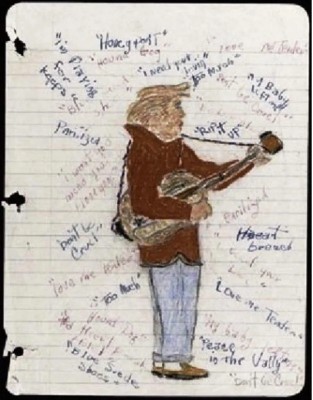Understanding Triskaidekaphobia: The Fear of the Number 13 and Its Origins
Triskaidekaphobia is the fear of the number 13. This fear doesn't fit neatly into the usual definition of a phobia because the number 13 is not an object or a situation that can be avoided easily. For a fear to be considered a phobia, it must significantly impact a person's life, but most people with triskaidekaphobia only experience anxiety in certain situations. This raises the question: Is triskaidekaphobia just a superstition?
Is It a Superstition or a Phobia?
Experts disagree on how to classify triskaidekaphobia. Some think it should be considered a superstition rather than a mental health condition. Others believe it might be a form of magical thinking, which, if combined with other symptoms, could indicate a delusional disorder.
Historical Origins
Regardless of its classification, the fear of the number 13 is ancient. It's often linked to early Christian beliefs. For example, there were 13 people at the Last Supper: Jesus and his 12 Apostles. Some say Judas, the betrayer, was the 13th to join, leading to the belief that when 13 people dine together, one will die within a year.
Interestingly, the number 13 also appears positively in the Bible. For instance, the book of Exodus talks about the 13 attributes of God, which adds complexity to the number's significance.
The fear of the number 13 also appears in pre-Christian traditions. In Viking mythology, Loki is considered the 13th god who caused trouble at the Banquet of Valhalla, leading to the accidental death of the god Baldr.
The oldest known reference to the fear of the number 13 might be in the Mesopotamian Code of Hammurabi from around 1760 BC, which skips the number 13 in its laws.
Modern Examples
Today, triskaidekaphobia is common in Western cultures. Many hotels skip the 13th floor, airlines often leave out row 13, and some cities avoid having a 13th Street. Friday the 13th is seen as particularly unlucky, and there's even a horror movie franchise based on this superstition. The fear of Friday the 13th is called paraskevidekatriaphobia. This fear might be linked to the arrest of the Knights Templar on Friday, October 13, 1307.
Other cultures have their own unlucky numbers. In China, the number 4 is considered unlucky because it sounds like the word for "death." These fears, like the fear of 13, often have roots in ancient events linked to the number.
Coping with Triskaidekaphobia
For most people, triskaidekaphobia is just a mild superstition, but for some, it can cause serious anxiety. If you go to great lengths to avoid the number 13 and feel intense fear when you encounter it, you might need help from a therapist.
Cognitive behavioral therapy (CBT) can help. This type of therapy often includes exposure therapy, where a therapist gradually exposes you to the number 13 in a safe environment to help you overcome your fear. In severe cases, medication might also be used alongside therapy to manage anxiety.
Triskaidekaphobia blends ancient superstitions with modern psychological understanding. Whether viewed as a superstition or a true phobia, the fear of the number 13 is real for many people and has deep historical roots. It remains a fascinating example of how human beliefs and fears can persist across centuries.
Get Free Gifts & Best Stories!
Join our newsletter to get our top stories of the month and free merch.
- 📚 Cool Stories: Read stories you won’t find in textbooks.
- 🎁 Free Gifts: Get exclusive stickers, t-shirts, and more!
Only 1 email a month. No spam, we promise!

